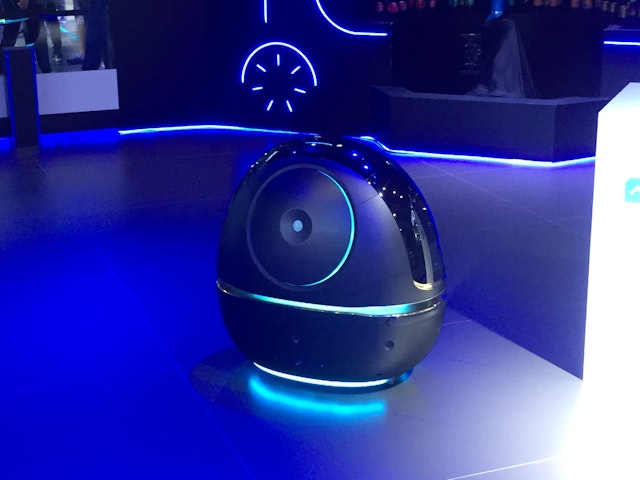Behind Alibaba’s plans to get autonomous cars into the fast lane
Autonomous cars are not a new idea...they were first mooted back in the 30s. But why, even now, they have not been universally adopted is a challenge that has exercised the engineers at Alibaba AI Labs, headed by Miffy Cheng.
Today, she led a presentation at the Alibaba Cloud conference that unveiled a new approach which is aimed at bringing autonomous driving to the masses at last.
The breakthrough idea is to create smart roads, as well as smart cars. Rather than loading more sensors into the vehicles, their idea is to have a network of static and connected roadside sensors that communicate with the cars and feed data into the company’s machine learning systems.
The benefits are three fold. Sensors required in self driving vehicles, are more expensive than the car. The projected cost of your average self-driving run around is projected to be over $200k. The approach of loading sensors static street systems means the costs can be crowd-shared reducing this price.
This will also make cars safer as the roadside units will be higher, so they can see more. As they are static, they will be able to judge motion more accurately. They are also connected to other systems meaning they can transit data from a thousand of kilometres away. And because they are connected they will offer more powerful and faster processing.
The aim here is to get autonomous driving to the stage where it is as near as possible 100% safe, said Chen.

Driving home the determination of the company to lead the way in autonomous vehicles Alibaba also announced the that an autonomous delivery test van had been granted license plates from the Hangzhou local police for the first time - as it accelerates real world testing. This will be one of the first autonomous vehicles that does not require a human to sit at controls ready to take over if things go wrong.
Underpinning all these developments is Alibaba’s AI systems that include Tmall Genie, an equivalent of Amazon’s Alexa assistant. Alibaba’s machine learning capabilities are being applied across a range of autonomous and transport projects.
A flurry of announcement highlighted the pace of developments. Chen for example announced two forms of small service robots, one designed for hotels and the other for centres such as hospitals.

Integrated with voice recognition technology, IoT infrastructure and machine learning, the small transporter robots can automatically deliver room service to hotel guests - finding the correct elevator, floor and room - as well as medication to hospital patients. The robots' height are less than one metre, while its walking speed reaches one meter per second. After a trial at a hotel, Alibaba AI Labs will assess its suitability for other areas, including hospitals, restaurants and office services.
This, Chen says, will reduce the need for service personnel and dramatically improve efficiently and usher in the era of the smart hotel, the first of which Alibaba are building in Hangzhou, the company’s home town.
During the talk, other innovations around Tmall Genie were announced - including how the home system will now being integrated into cars such as Volvo. ‘The car will now become the most expensive Tmall Genie’ accessory, the audience were told. Voice recognition will allow drivers to use voice commands to book appoints, flights as well as operate domestic appliances like air conditioning. People at home will also allow to be able to speak to drivers via the integrated system.
Volvo said the car will also offer integration with Android for Western customers - but there is a sense that the sheer scale of China and the stupendous amount of data its consumers generate will mean its machine learning system will learn faster than its Western counterparts.
There is also a new partnership with Bosch to introduce automated valet parking (AVP) solutions in China. First announced in 2017, Ford Kuga SUV customers will also finally be able to order the car which has a 10.4-inch centre screen and software powered by AliOS, Alibaba's operating system, later this year.
The other huge benefit is its integration into a government who welcome the systems perhaps as a way of ‘managing’ its citizens in a way western democracies would find unacceptable.
One example of this is City Brain, a system that helps manage the traffic flows - and already fully adopted by the City of Hangzhou. Machine learning is used to optimise traffic flows - such as controlling traffic signals and rapidly deploying police to incidents that might cause delay.
Chen told the audience the the age of the robot has arrive, although it may not manifest in a form that resemble a human. ‘AI is brain, the internet of things is the neuro network and smart logistics is the delivery mechanic.’
So an all seeing, all knowing virtual entity? No wonder many attending almost see the cloud conference as a religious event.
Content created with:

Alibaba
Alibaba Group Holding Limited is a Chinese multinational e-commerce, retail, Internet, AI and technology conglomerate founded in 1999.
Find out more